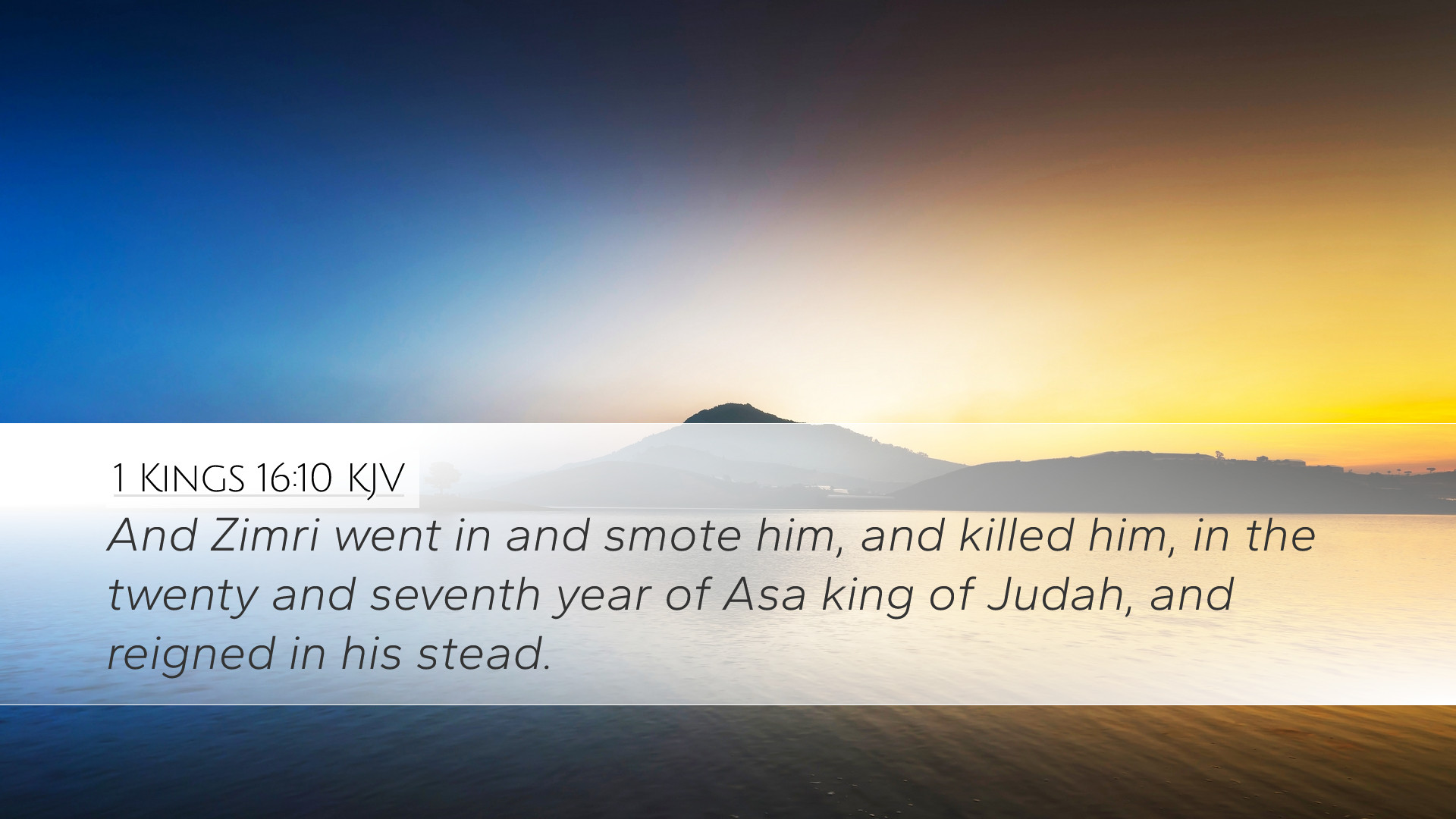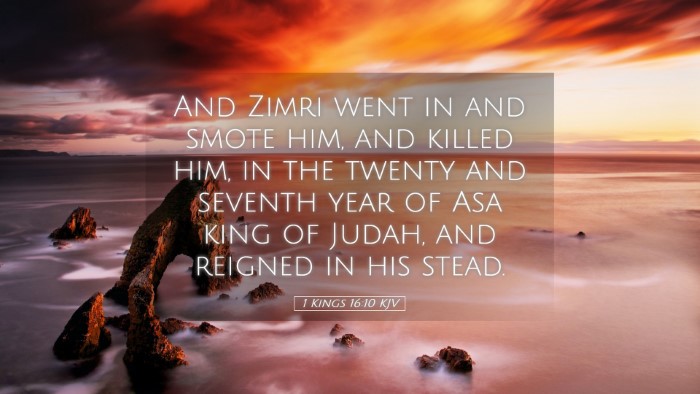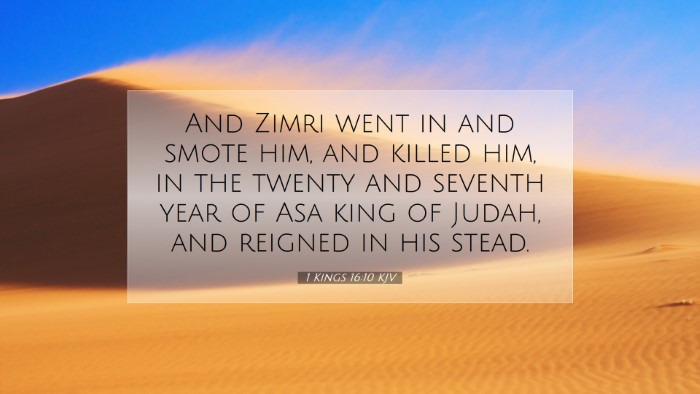Commentary on 1 Kings 16:10
Verse Text: "And Zimri went in and smote him and killed him in the twenty-seventh year of Asa king of Judah, and reigned in his stead." (1 Kings 16:10)
Introduction
The narrative surrounding Zimri's rise to power is a pivotal moment in the history of the northern kingdom of Israel. This verse lays the foundation for understanding the tumultuous dynasties and the political instability that plagued Israel. By examining the insights of well-respected biblical commentators, we can glean a deeper understanding of the implications and theological reflections of this event.
Background Context
As Israel navigated through a period of significant moral and spiritual decline, the monarchy was characterized by violence, betrayal, and shifting allegiances. Zimri, not a man of noble birth but one of the captains of the chariots, seizes the throne through regicide, killing King Elah, the son of Baasha, which marks a historical point of chaos in Israel's leadership.
Political Climate
Matthew Henry and Albert Barnes highlight the dire political climate that led to such drastic actions. The text illustrates a stark departure from God’s intended order and the emergence of human-led rule marked by violence. The deep-seated corruption of the royal family underscores the moral decay within the nation, and Zimri's act is both a symptom and a catalyst of further instability.
The Act of Assassination
According to Adam Clarke, Zimri's bold and treacherous act was premeditated. It reflects not only his personal ambition but also serves as a commentary on the nature of leadership during this time. The assassination occurs in the midst of drunken revelry, suggesting a deep moral depravity not just in the leadership but within society as a whole.
Nature of Leadership
- Brutality of Ascension: Zimri's pathway to kingship is emblematic of the brutal realities of leadership in Israel during this period, highlighted by the fact that it was common for usurpations to include eliminating one's predecessor.
- Judgment and Consequence: The act of killing the king can also be viewed through a lens of divine judgment; Henry points out that Zimri's ascent ultimately leads to his downfall, reflecting biblical themes of the transient nature of power.
Theological Reflections
The actions of Zimri can be seen as a reflection on the divine sovereignty and human free will. This tension presents an opportunity for deep theological reflection. While Zimri acts according to his will, it could be argued that his actions fit into a larger divine plan, as later narrated in 1 Kings, which leads to further judgment on Israel for their idolatry and sin.
God's Sovereignty
Commentators like Barnes discuss how this event illustrates the fulfillment of prophetic words against the house of Baasha. It emphasizes the themes of divine judgment and retribution that run throughout the historical books of the Old Testament. Zimri's reign, although marked by bloodshed, is part of God's overarching narrative of redemption, which ultimately points to the coming of the Messiah, who would establish a kingdom of peace.
Human Responsibility
Adam Clarke notes the serious implications of human actions within the divine framework. The willingness of Zimri to act without regard for the covenantal obligations or the law reflects a deep-seated rebellion against God’s appointed authority. This serves as a warning for believers about the usage of power and the moral obligations that accompany leadership.
Conclusion
1 Kings 16:10 is a critical verse that encapsulates the tension between human ambition and divine sovereignty. As pastors, students, and theologians reflect on this passage, it prompts vital discussions regarding the nature of leadership, the consequences of sin, and the sovereignty of God in the midst of human chaos. The implications of Zimri's actions encourage believers to seek a deeper fidelity to God's ways in their leadership endeavors, reminding us that God's reign ultimately prevails, even through the tumult of human history.


